Films with theme "Documentary films about health care", sorted by revenue
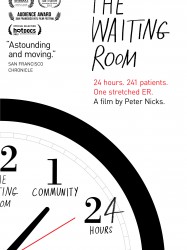
The Waiting Room (2012)
, 1h21Origin USA
Genres Drama, Documentary, Romance
Themes Documentary films about health care
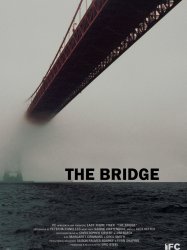
The Bridge (2007)
, 1h35Directed by Eric Steel
Origin USA
Genres Documentary
Themes Medical-themed films, Pont, Films about suicide, Documentaire sur une personnalité, Documentary films about health care, Documentary films about cities, Films about psychiatry, Films about disabilities
Actors Chris Brown
Ce documentaire, qui explore les aspects les plus sombres de la nature humaine et de la psyché, s'intéresse à ces individus qui ont choisi de mettre fin à leurs jours en sautant du légendaire Golden Gate Bridge en 2004.

Cocaine Cowboys (2006)
, 1h56Origin USA
Genres Documentary, Action, Crime
Themes Medical-themed films, Films about drugs, Documentary films about law, Documentary films about health care, Documentary films about cities
Cocaine Cowboys chronicles the development of the illegal drug trade in Miami during the 1970s and 1980s with interviews of both law enforcement and organized crime leaders, in addition to news footage from the era. The film reveals that in the 1960s and early 1970s, marijuana was the primary import drug into the region. During the 1970s, marijuana imports were replaced by the much more lucrative cocaine imports; as more cocaine was smuggled into the United States, the price dropped, allowing it to turn "blue collar," and be available to a wider market. Drug importers reveal several of the different methods used to import the drug into Florida.

Narco Cultura (2013)
Directed by Shaul Schwarz
Genres Documentary, Crime
Themes Medical-themed films, Films about drugs, Documentary films about law, Documentary films about health care
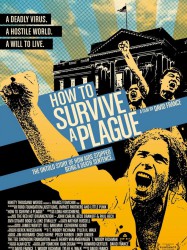
How to Survive a Plague (2012)
, 1h49Origin USA
Genres Biography, Documentary, Historical
Themes Medical-themed films, Films about sexuality, LGBT-related films, Documentary films about historical events, Documentaire sur l'homosexualité, Documentary films about politics, Documentary films about health care, Political films, LGBT-related films, HIV/AIDS in film, LGBT-related film
Actors Larry Kramer
Le film traite des premières années de l'épidémie du SIDA, et des efforts d'Act up et de Treatment Action Group .
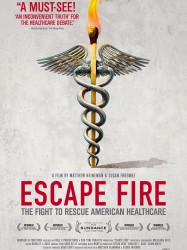 , 1h38
, 1h38Directed by Matthew Heineman
Origin USA
Genres Documentary
Themes Documentary films about health care
"ESCAPE FIRE: The Fight to Rescue American Healthcare" tackles one of the most pressing issues of our time: how can we save our badly broken healthcare system? ESCAPE FIRE examines the powerful forces maintaining the status quo, a medical industry designed for quick fixes rather than prevention, for profit-driven care rather than patient-driven care. The film follows dramatic personal stories, as well as leaders fighting to transform healthcare at the highest levels of medicine, industry, government, and even the US military.

Batkid Begins (2015)
, 1h27Origin USA
Genres Documentary
Themes Films about children, Medical-themed films, Documentary films about health care, Documentary films about cities, Films about cancer, Films about disabilities
Actors Burt Ward, Hans Zimmer

Body of War (2007)
Directed by Ellen Spiro
Origin USA
Genres War, Documentary
Themes Politique, Documentary films about war, Documentary films about historical events, Documentaire sur une personnalité, Documentary films about politics, Documentary films about health care, Films about disabilities, Political films
Après les attentats du 11 septembre 2001, Tomas Young devient soldat parce qu'il veut défendre son pays contre le terrorisme. Bientôt il se retrouve à la guerre d'Irak ou il perd sa santé. Désabusé, sérieusement handicapé, il retourne aux États-Unis et se demande s'il n'a pas été trompé par la propagande.
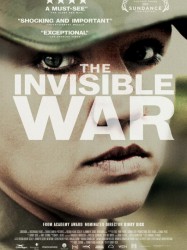
The Invisible War (2012)
, 1h37Directed by Kirby Dick
Origin USA
Genres Drama, War, Documentary, Historical, Crime
Themes Films about sexuality, Rape in fiction, Documentary films about law, Documentary films about war, Documentary films about historical events, Documentaire sur une personnalité, Documentary films about health care
Actors Kirby Dick, Amy Ziering
The Invisible War features interviews with veterans from multiple branches of the United States Armed Forces who recount the events surrounding their assaults. Their stories show many common themes, such as the lack of recourse to an impartial justice system, reprisals against survivors instead of against perpetrators, the absence of adequate emotional and physical care for survivors, the unhindered advancement of perpetrators' careers, and the forced expulsion of survivors from service.

Hell and Back Again (2011)
, 1h28Origin USA
Genres War, Documentary, Action, Historical
Themes Medical-themed films, Films about terrorism, Documentary films about war, Documentary films about historical events, Documentaire sur une personnalité, Documentary films about health care, Films about psychiatry, Films about disabilities, Political films, United States Armed Forces in films
Danfung Dennis filme le quotidien d'un régiment de l'armée américaine en Afghanistan, et plus particulièrement celui du Marine Harris jusqu'à son retour, blessé physiquement et mentalement, en Caroline du Nord.

Gray's Anatomy (1996)
, 1h20Directed by Steven Soderbergh
Origin USA
Genres Drama, Comedy, Documentary
Themes Documentaire sur une personnalité, Documentary films about health care
Actors Spalding Gray
Le comédien Spalding Gray parle de la maladie qu'il a eue aux yeux et des nombreux remèdes qu'il a dû utiliser pour la soigner.

Pink Ribbons, Inc. (2011)
, 1h37Directed by Léa Pool
Origin Canada
Genres Documentary
Themes Environmental films, Feminist films, Medical-themed films, Documentary films about environmental issues, Documentary films about health care, Films about cancer, Political films

So Much So Fast (2006)
, 1h27Origin USA
Genres Documentary
Themes Documentaire sur une personnalité, Documentary films about health care, Films about disabilities
So Much So Fast documents 5 years in the life of Stephen Heywood who, at 29, discovers he had the paralyzing neurodegenerative disease Amyotrophic lateral sclerosis (Lou Gehrig’s disease).
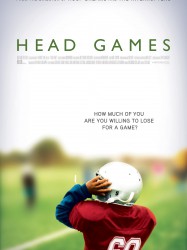
Head Games (2012)
, 1h15Directed by Steve James
Origin USA
Genres Documentary
Themes Sports films, Documentary films about sports, American football films, Documentary films about health care
Actors Chris Nowinski
This script must be run from the command line

The Ground Truth (2006)
, 1h12Origin USA
Genres War, Documentary
Themes Documentary films about war, Documentary films about historical events, Documentaire sur une personnalité, Documentary films about health care, Political films
Actors Sean Huze
The film addresses the issues many soldiers face upon their return from the War in Iraq, including problems with Post Traumatic Stress Disorder and an inability to meld back into "normal" society. The film includes footage of soldiers in Iraq and personal interviews with about two dozen people directly affected by the war (either veterans or family members/friends of veterans). The veterans, both men and women, speak of their experiences before, during, and after the war. The veterans speak about recruitment and training, combat, their returns home, facing their families, and their difficulties in making the necessary changes needed to fit back into society. The Ground Truth was released in theatres on September 15 of 2006 and released on DVD on September 26 of the same year. People can sign up to host screenings of the film online at The Ground Truth or view a low-resolution copy online, see bottom.
 Connection
Connection